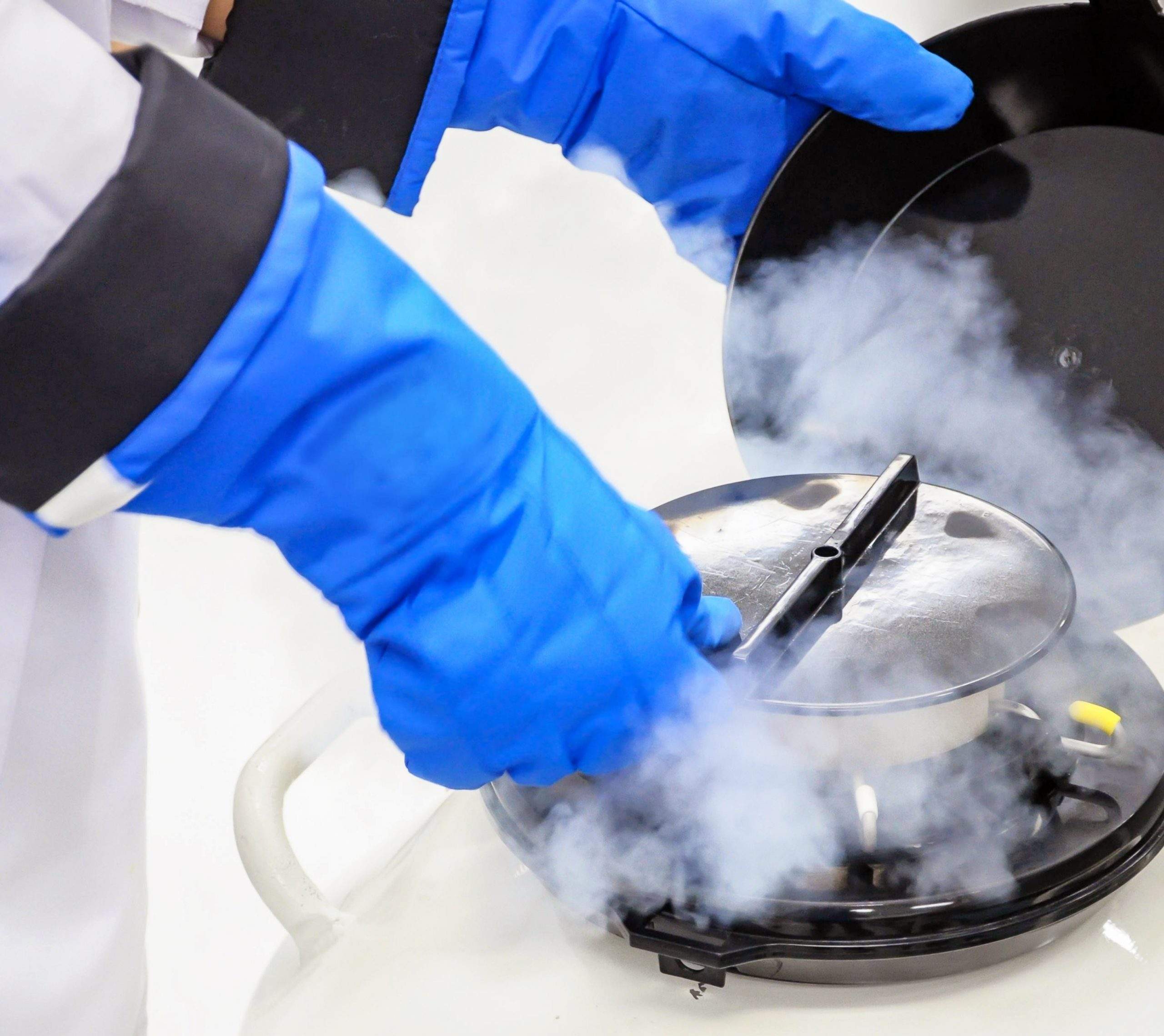Years leading the industry in human reproductive cryostorage
Strategically located, convenient locations to meet your needs
Fertility Organizations served
Hours a day tanks are monitored to assure the safety of specimens.

The overwhelming reason people store embryos is for the ability to use them in future cycles and to avoid additional egg retrievals. At ReproTech, we provide affordable and cost-effective options for safe, reliable, long-term embryo storage. The list of fertility clinics that trust us to provide this essential service to their patients continues to grow and that’s why over half our storage capacity is dedicated to embryos.
More and more patients are freezing sperm before starting cancer treatments, deploying in the military, participating in high-impact sports, planning on having a vasectomy, or starting gender transition. For these individuals, their desire for a family in the future lies in protecting their options with sperm storage today — as illustrated by the fact that nearly a third of our storage is sperm.
Advances in freezing methods mean that egg/oocyte storage is growing as cancer patients of all ages are being advised to protect their future fertility, and career-focused individuals opt to store their young eggs for future use when they are ready to start a family.
